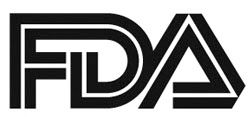FDA Halts Lacutamab Phase II Trial in Advanced T-cell Lymphomas
The phase II TELLOMAK trial, which is evaluating the safety and efficacy of lacutamab in patients with advanced T-cell lymphomas, has been placed on a partial clinical hold by the FDA. The decision was made following discussions regarding Good Manufacturing Practice deficiencies at a subcontractor site that manufacturers the agent in December of 2019, according to a press release from Innate Pharma SA.

The phase II TELLOMAK trial, which is evaluating the safety and efficacy of lacutamab (IPH4102) in patients with advanced T-cell lymphomas, has been placed on a partial clinical hold by the FDA. The decision was made following discussions regarding Good Manufacturing Practice (GMP) deficiencies at a subcontractor site that manufacturers the agent in December of 2019, according to a press release from Innate Pharma SA.
The terms of the trial suspension indicate that patients can no longer be enrolled; however, patients who were already enrolled in the study can continue on treatment with lacutamab, once new consent is secured. The study can begin enrolling patients again once a new GMP-certified batch of lacutamab is available.
There were no new safety concerns related to the trial medication reported by the FDA. The FDA safety findings were consistent with a review conducted by the Independent Data Monitoring Committee (IDMC), which determined that lacutamab was well-tolerated in patients with advanced T-cell lymphomas and that study enrollment was safe to continue if regulatory agencies agreed.
The TELLOMAK trial is an open-label, multicohort, multi-center, phase II study of lacutamab alone or in combination with chemotherapy for the treatment of advanced T-cell lymphoma. The primary end point of the study is overall response rate and key secondary end points include the incidence of treatment-emergent adverse events, quality of life, progression-free survival, and pharmacokinetics.
Prior to the partial clinical hold, the study was enrolling patients with Sézary Syndrome following least 2 prior systemic therapies, including mogamulizumab; stage IB to IV mycosis fongoïdes after 2 prior regimens; and certain subtypes of relapsed/refractory peripheral T-cell lymphoma after 1 prior therapy. Patients were required to be at least 18 years of age with an ECOG performance status of 2 or lower. These enrollees must have a minimum wash-out period of 4 weeks between the last dose of prior systemic therapy and the first dose of lacutamab, have recovered from prior grade 1 or higher adverse events associated with prior therapy, and have adequate baseline laboratory values.
The study excluded patients who were previously treated with lacutamab, concomitant administration of radiotherapy or systemic anticancer therapy, prior allogeneic transplantation, autologous stem cell transplantation less than 3 months prior to enrollment, and those who had undergone major surgery ≤4 weeks prior to enrolling in the study. Individuals with certain medical conditions were also excluded from the study.
Innate Pharma SA is currently working on a contract with a new manufacturing company to develop the GMP-certified version of lacutamab. The company predicts that the drug will be available in the second quarter of 2020.
The Medicines and Healthcare Products Regulatory Agency in the United Kingdom, however, has agreed for the trial to continue as planned with the currently available supply of lacutamab.
Reference:
Innate Pharma Provides Update from Regulatory Agencies On Lacutamab Tellomak Trial [news release]. Marseille, France: Innate Pharma SA; January 9, 2020. https://bit.ly/2T3OnLL. Accessed January 9, 2020
Examining the Non-Hodgkin Lymphoma Treatment Paradigm
July 15th 2022In season 3, episode 6 of Targeted Talks, Yazan Samhouri, MD, discusses the exciting new agents for the treatment of non-Hodgkin lymphoma, the clinical trials that support their use, and hopes for the future of treatment.
Listen